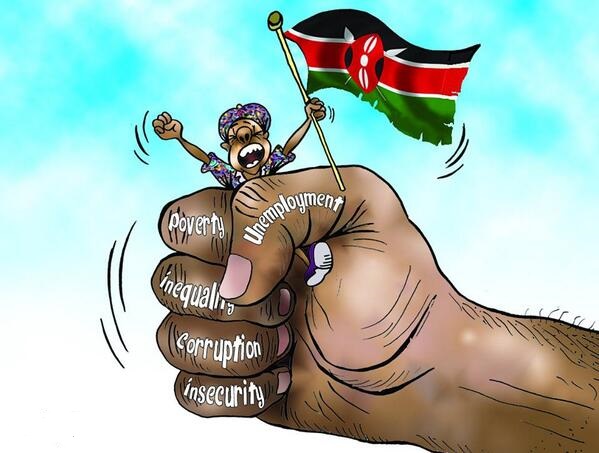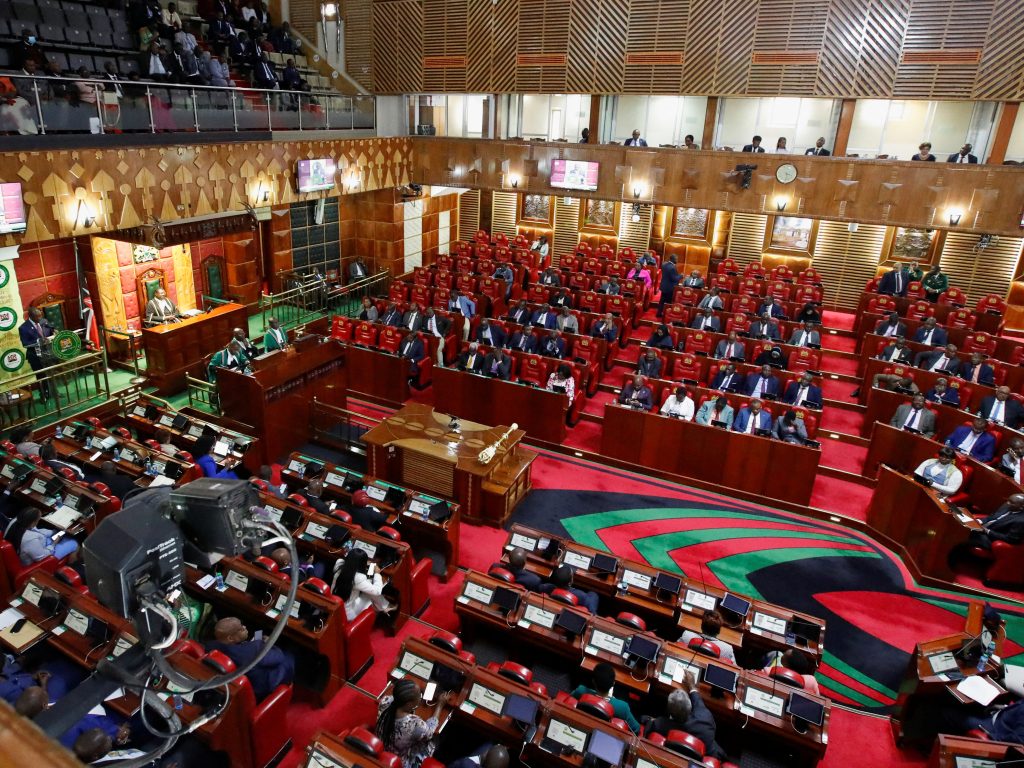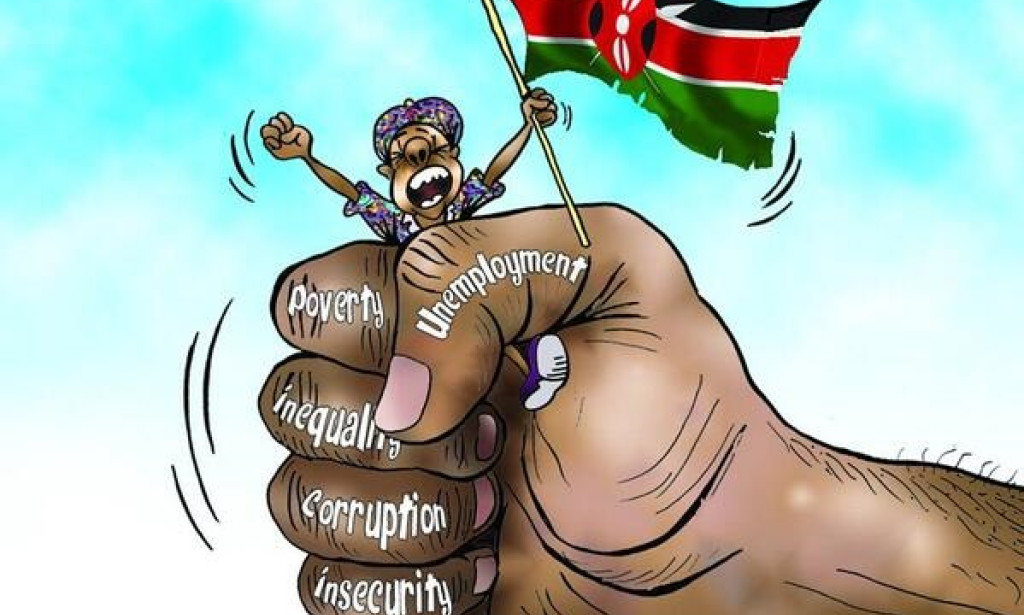Kenya’s journey since independence in 1963 reveals a profound disconnect between democratic ideals and lived realities. What was envisioned as a unified republic built on equitable resource allocation and mutual respect has devolved into a system where money trumps integrity, truth becomes the first casualty of political ambition, and ethnic divisions are weaponized for electoral gain. The nation’s democratic framework, borrowed from Western models, appears fundamentally misaligned with Kenya’s complex tribal dynamics and diverse national interests. Politicians exploit these divisions through manufactured social conflicts. Simultaneously, it fails to address the educational regression producing an increasingly manipulable electorate. The systematic breakdown extends beyond political corruption to encompass institutional failures in government representation, economic development, and cultural preservation. The result is a society where forced disappearances coexist with presidential fantasies, where practical village polytechnic graduates thrive. Moreover, university graduates face unemployment, where perception matters more than tangible progress.

Political Manipulation and Corruption
🔥Kenya’s democracy is misapplied and unsuitable for its unique circumstances, failing to address the needs of its diverse nations within the republic.
💰To become president in Kenya, one needs money, money, and more money, with integrity being irrelevant as corruption follows after assuming office.
🗳️Politicians exploit the electorate by creating social pits and manipulating the masses, rather than leading and educating them.
🤥In Kenyan politics, the first casualty is truth, as politicians lie to please the public who enjoy being deceived.

Ethnic Divisions and Resource Allocation
🏛️Kenyan leaders claim unity but mention specific communities in speeches, revealing ethnic divisions and allocating resources to particular groups instead of promoting national growth.
🌍Kenya is not one people, but many nations with different interests, requiring an understanding of geopolitics and the largest communities for electoral success.
🏴☠️The “divide and rule” strategy of colonialism kept tribes within boundaries and played them against each other, preventing unity.
💼The bloat in government representation is an illusion, with county governments failing to provide proper representation and resource distribution.

Education System Failures
📚Kenya’s education system is regressing to a colonial model that stifles critical thinking and serves foreign interests, educating people only to a certain level.
🎓Politicians formulate disastrous education policies to create an illiterate electorate they can manipulate, producing graduates with irrelevant degrees for a saturated job market.
👨🔧Village polytechnic graduates never go hungry due to their practical skills, while university graduates with irrelevant degrees face depression and unemployment.

Government Misconduct and Impunity
🕵️Forced disappearances and abductions in Kenya backfire, causing lasting damage and distrust in the government, especially with rapid media coverage.
🚔Illiteracy among presidential bodyguards bred impunity and crude behavior, leading to entitled actions like threatening waitstaff and stealing from hotels.
🏛️Presidents live in a fantasy world, shielded from the truth by their handlers, and can only remove mistreating officials by destroying their anchor.
Historical Injustices and Exploitation
💸In the 1970s, Gikuyu people contributed 10 billion shillings to a development scheme but were shortchanged and intimidated from taking legal action by Kenyatta.
🗽At independence in 1963, different nations formed the Republic of Kenya expecting equitable resource allocation and respect for their dignity, which was not fulfilled.
Media and Public Perception
📺Perceptions matter more than tangible benefits in Kenya, with people satisfied by feel-good factors even without personal knowledge of leaders.
🎭Meet the People Tours by cabinet ministers are ineffective if not genuine, as fake crowds and paid supporters can lead to ministers being shouted down.
International Relations and African Unity
🌍The African Union was criticized as ineffective and hypocritical by Malawi’s late president Kamuzu Banda for ignoring issues like Arab domination in Sudan and slavery in Mauritania.
🕵️Assassinations are meant to be stealthy, but public spectacles can create perceptions of presidential involvement, even if untrue.
Cultural and Societal Issues
🤝Kenyans are corrupt and greedy, reflecting the loss of the country’s original philosophy of unity and integrity since independence in 1963.
👥There is no single tribe in Kenya, as each region has subtribes that may not understand each other, complicating political dynamics.
Economic Strategies and Development
💼County governments should ideally provide representation and resource distribution, but this is being implemented incorrectly.
🏗️The government must create opportunities and give hope, as one of its responsibilities is to sell hope to the people.
Inference
Kenya’s multifaceted crisis demands recognition that democracy cannot be imposed as a one-size-fits-all solution on a nation comprising distinct peoples with varying interests and aspirations. The colonial legacy of “divide and rule” continues to manifest in contemporary political strategies that prioritize ethnic manipulation over national unity, creating a vicious cycle where leaders exploit divisions they simultaneously claim to bridge. The systematic destruction of educational standards to maintain an electorate incapable of critical analysis, while government institutions designed for representation become tools of resource hoarding rather than equitable distribution. Historical injustices, from the 1970s Gikuyu development scheme shortchanging to ongoing forced disappearances, demonstrate how impunity breeds distrust and perpetuates cycles of exploitation. Kenya’s path forward requires acknowledging that true unity cannot be achieved through superficial slogans or borrowed democratic models, but through genuine recognition of its diverse nations’ legitimate interests, restoration of educational integrity, and cultivation of leaders who prioritize truth over manipulation. Only by confronting these fundamental contradictions between democratic rhetoric and authoritarian practice can Kenya hope to fulfill the promise of 1963: a republic that serves all its people with dignity and equity.


You must be logged in to post a comment.